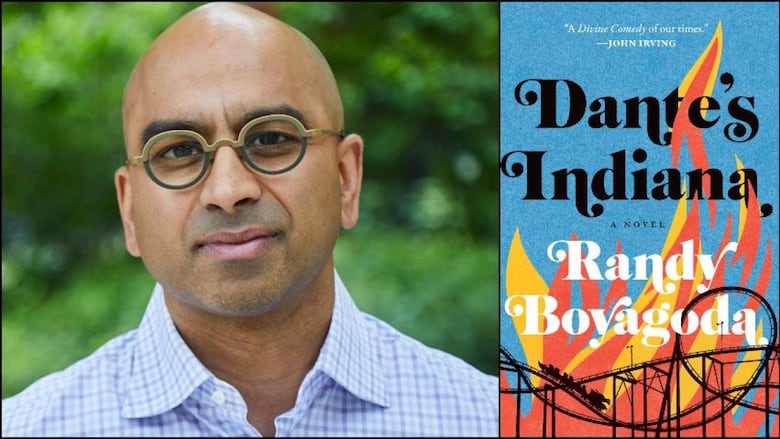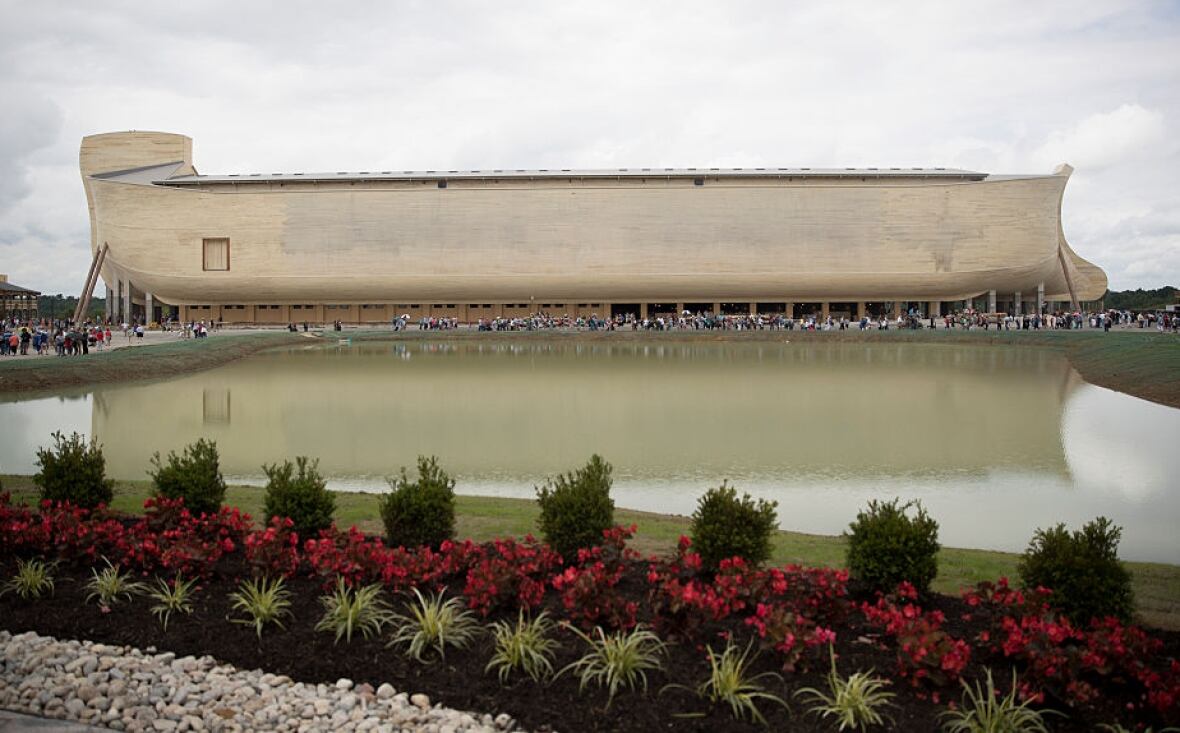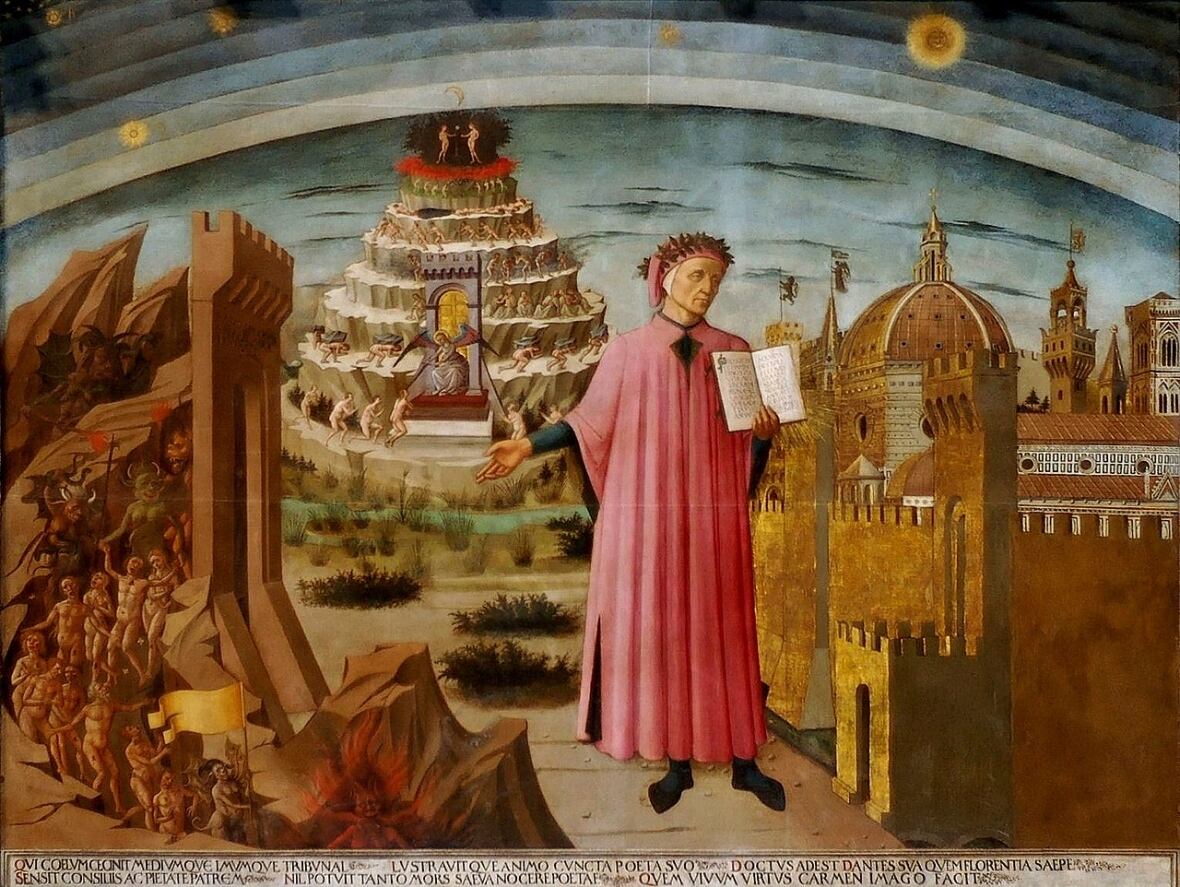Randy Boyagoda sees today's America through Dante's Divine Comedy
The novelist explores what the 'middle of the middle of the middle of America' says about the U.S.

*Originally published on June 29, 2022.
Take a struggling small town in the Rust Belt, then view it through the lens of a fourteenth-century literary masterpiece. The result: Randy Boyagoda's novel, Dante's Indiana.
"An evangelical businessman comes up with the idea of opening a Dante theme park in abandoned basketball arenas in town. And for him, this is his way to save his town from otherwise total ruin," he told IDEAS.
The town — Terre Haute, Indiana — was being ravaged by a spiking opioid crisis and chronic unemployment. So to attract tourists and employ locals, the town decides to build a theme park based on The Divine Comedy.
The plot may seem a bit far-fetched, but it's based on two solid pillars. The first is Boyagoda's own experience of travelling throughout the U.S., where creationist theme parks abound. Combining the trappings of conventional theme parks — rides, contests, blinking lights and blaring speakers — with Biblical Christianity, they are unapologetically far-fetched.
"I went to a place called Ark Encounter [in Kentucky], which purports to be a life-sized version of Noah's Ark, which is set up in a giant concrete kind of wasteland slash parking lot. … I was blasted by two things: air conditioning and the smell of cow manure. And those two things together make it kind of perfectly authentically American, right? Of course, we can have air conditioning in this place. And of course, we want it to be authentic, so we're going to create the smell of a barn inside this ark."

The other pillar is a notion Boyagoda takes straight out of Dante: contrapasso. As he says, the term — which occurs only once in Dante's Commedia — "explains the cause and effect relationship between what you do in this life, and what you either have to do — or what is done to you — for all eternity."
Given the town's opioid crisis, the dilemma struck Boyagoda as both tragic and central.
"The only way that the people still working in the one major factory left in town, the only way for them to keep their work, is to begin working to package opioids, which of course, are what is destroying their family members. But this is the only way to kind of provide for their family members. And that strikes me as an American contrapasso."
Yet there is hope. Boyagoda is quick to point out that The Divine Comedy is more than just Inferno. There's Paradise. And Purgatory, which isn't the bleak outpost many may think it is. It's the place where sin is purged from the soul as it approaches the divine.

But why Terre Haute, Indiana? "Terre Haute translated is 'high ground'... Inferno is an inverted mountain at the end of which, they see the stars, Dante and [and his guide, Virgil] then moved [on] to Purgatory, which Dante figures as a mountain. And so then he [Dante] has to climb the mountain. People are climbing the mountain. The struggle of doing so is the paragon of experience that prepares them to go into heaven," Boyagoda explained.
"And so if I think about Indiana, I think about the middle of the middle of the middle of America. And then I think about Terre Haute being high ground. Well, in so many different ways that just becomes, for me, an American figuration of Purgatory, where others would see Inferno. That's again, the hopefulness."
Dante's Indiana is published by Biblioasis.
*This episode was produced by Greg Kelly.